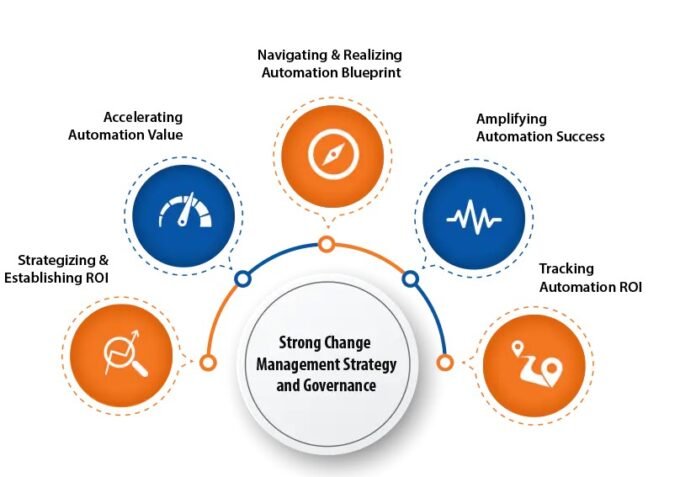The modern marketing landscape has undergone significant changes over the years. We can thank the internet for opening up many ways to reach customers. That is why companies are adopting the multichannel approach to marketing. That means using as many platforms as possible to reach customers.
The avenues include social media, websites, analog media, email marketing, etc.
But omnichannel marketing on its own may not achieve the right results. The lack of integration between the channels can hamper its effectiveness. What customers see on one channel may differ from what they see on another. Oftentimes, there is no uniformity in brand messaging. This is because each platform operates as a standalone.
The solution lies in their combination of multichannel and omnichannel marketing. The latter is customer-centric. It aims to create a fantastic experience on whatever channel the customers are using. This is because there is an integration of the different media.
Our article looks at some facts about the cloud-based omnichannel experience.
Understanding How the Omnichannel Experience Works
The omnichannel experience means meeting the customers right where they are. It should not matter which channel or device they use. The social media shopper should have the same experience as the brick-and-mortar one.
The omnichannel contact center must be up-to-date with the customer journey. Only then can they resolve any issues on time. It provides an effective way to ensure a good customer experience.
Many companies are now moving their contact centers to the cloud. The dependence on physical hardware can lead to inefficiencies. Further investing in the hardware may be too expensive for smaller companies.
An omnichannel cloud contact center improves reliability, better functioning, and remote access. Further, there is the benefit of faster upgrades. The cloud-based software helps with managing customer interaction from many channels. But there’s much more to know.
-
Cloud-Based Omnichannel Experience Allows for Scalability
If you dissect the omnichannel experience, you will see many touchpoints. Each channel becomes an access tool for funneling information. You need a large-scale application to manage the interactions from all the channels. The applications should be capable of delivering the desired customer experience.
A cloud-based omnichannel experience breaks down the invisible walls in channel-based interactions. It offers flexibility and agility without compromising efficiency. You can expand or reduce the scale of operations as you need to. Yet it comes without the attendant cost of investing in physical hardware.
-
Seamless Integration of Many Channels with Cloud Contact Centers
The strength of the omnichannel experience is that customers can connect through any channel. The contact center agents receive communication from phone, SMS, social media, and websites.
Within seconds, they could get thousands of messages requiring their attention. At the same time, the agents need quick access to information. If a customer needs help, they should not ask for a full breakdown of the issue.
Cloud contact centers allow for the seamless integration of all the platforms. From a single dashboard, the agents can find everything they need. It should not matter who is on the desk at any particular time. Any agent can take over, tap into the cloud system and continue to assist customers. The unification of the channels improves consistent and efficient service.
-
Easier Mapping of the Customer Journey
Every customer goes through their unique buyer journey. You must understand this to provide a good customer experience. The insights can, for instance, help with service or product personalization. It lets the customers know you value them.
Omnichannel systems make mapping the customer journey easy. You can follow the buyers on many channels and collect data from their interactions. You get to know their buying patterns, what interests them, and more.
The information provides a robust tool for pre-emptive customer service. You can recommend products, help complete transactions and provide extra services. Imagine doing all that without prompting on the customer’s part.
-
Higher Efficiency with Cloud Contact Centers
Cloud contact centers do not only benefit the end customer. The technology is also a godsend to the live agents in the following ways:-
- Time-saving aspect when managing customer issues. Quick access to information removes the need to ask customers to repeat themselves. Let’s say a customer switches from an online chat to a call with the agent. A glance at the dashboard should update the agent on what is happening in the chat window. For the customer, it removes the frustration of repeating oneself. There is also the extra benefit of faster resolution to their concerns.
- Cloud contact centers with automatic call distribution help with intelligent routing. The distributor looks at the customer’s details and interactions. It will then link the customer with the live agent who is in the best position to help them. So, a tech-related query would go straight to the tech support, thus faster handling of issues.
- Priority routing pushes the most urgent concerns to the top of the line.
- Workforce management systems forecast channel volumes and distribute the loads as needed.
Higher efficiency within the teams means a better ability to handle customer issues. With better access to updated information, the agents can better help customers.
-
Remote Access and Data Safety
Remote access to cloud information is also vital in providing the omnichannel experience. Let’s go back to the tech support example. Let’s say the agent was managing a particular customer problem. He does not need to wait to get to the office to continue working. Even from home, he can log in and continue to assist the customer.
Cloud omnichannel contact centers are safer than physical devices for data storage. Fires, floods, or other natural disasters can damage servers. The same applies to hard drives or physical files.
It would be disastrous for a company to lose all the information. Cloud-based storage offers greater data security. Even if there is an issue, there are backups in place. That way, the company can recover from downtime in a short time.
Final Thoughts
A cloud-based omnichannel experience a the solution to providing an excellent customer experience. The technology allows scalability, remote access, and greater security for your customer data.
Mapping the customer journey will be easy as you can track movement from channel to channel.
Integrating the different channels into one dashboard makes the agents’ work easy. Quick access to information means higher efficiency in service provision.








